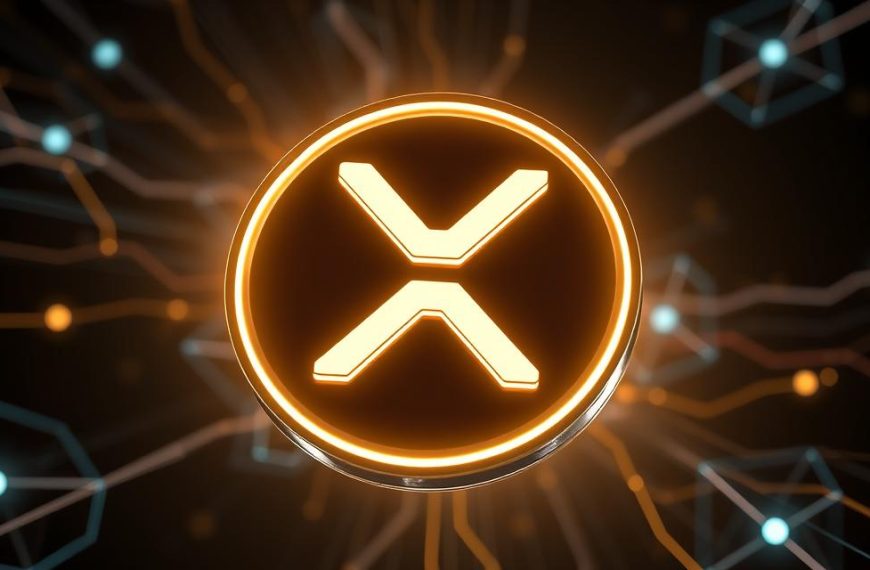The cryptocurrency market has experienced exponential growth, presenting both opportunities and challenges for new investors. With numerous cryptocurrency platforms available, finding a secure and reliable place to buy crypto can be overwhelming.
To navigate this complex landscape, it’s essential to consider security, user experience, and fee structures when selecting a cryptocurrency exchange. A reputable platform like Crypto.com can provide a trusted environment for your transactions, supporting various payment methods and secure storage options.
Understanding the fundamentals of cryptocurrency purchasing is crucial before investing. By focusing on trusted exchanges and best practices, you can start your crypto journey safely and confidently.
Understanding the Cryptocurrency Market
Understanding the cryptocurrency market requires knowledge of its unique characteristics and security measures. The cryptocurrency market is a complex ecosystem that involves various stakeholders, including exchanges, users, and investors.
What Makes Cryptocurrency Different from Traditional Currency
Cryptocurrency is distinct from traditional currency due to its decentralized nature and the use of blockchain technology. Transactions are recorded on a public ledger, ensuring transparency and immutability. This decentralized system operates independently of central banks and governments, offering a new paradigm for financial transactions.
The Importance of Security When Buying Crypto
Security is paramount when buying cryptocurrency. Exchanges and platforms must implement robust security practices to protect users’ funds. As Coinbase notes, “From auto-enrolled 2-factor-authentication to multi-approval withdrawals in Coinbase Vault, we provide powerful security features to all our users.” Key security measures include two-factor authentication, cold storage solutions, and insurance policies to safeguard against potential breaches and losses.
Top Crypto Exchanges for Beginners
Choosing the best crypto exchange as a beginner can be overwhelming without the right guidance. The key is to find a platform that balances security with user-friendly features.
Coinbase: The User-Friendly Option
Coinbase stands out for its ease of use, making it an ideal choice for those new to crypto. The platform offers a simple and intuitive app that facilitates buying and selling cryptocurrencies.
Kraken: Security-Focused Trading
Kraken is renowned for its robust security measures, including storing 95% of assets in air-gapped cold storage. It offers over 200 cryptocurrencies for trading and provides a mobile app with advanced features like portfolio tracking and price alerts.
Kraken’s service includes 24/7 support through live chat and email, ensuring that users receive assistance whenever needed. The exchange also offers competitive fees based on 30-day trading volume.
Both Coinbase and Kraken cater to beginners by offering a mix of security, service, and user-friendly interfaces, making them top choices in the crypto market.
Where Can I Buy Crypto with the Lowest Fees?
When looking to buy crypto, one of the most critical factors to consider is the fee structure of the exchange. Different platforms charge varying rates, which can significantly impact your investment.
Understanding Fee Structures
Crypto exchanges typically charge fees for transactions, which can include maker-taker fees, spread fees, and sometimes even deposit or withdrawal fees. Understanding these fees is crucial to minimizing your costs. For instance, some exchanges offer discounted fees for using their native tokens or for high-volume trading.
Platforms with Competitive Fee Rates
Several platforms offer competitive fee rates. For example:
- Binance offers spot trading fees starting at 0.1%, with discounts available when using their BNB token.
- Kraken Pro provides maker-taker fees starting at 0.16%/0.26%, decreasing for high-volume traders.
- FTX.US has a straightforward fee structure with maker-taker fees beginning at 0.10%/0.20%.
- Gemini Active Trader reduces fees compared to their basic interface, offering 0.25%/0.35% maker-taker fees.
- Decentralized exchanges like Uniswap charge a flat 0.3% fee, though network gas fees can add to the cost.
For more information on finding the best crypto exchange with the lowest fees, you can visit TokenTax for a detailed analysis.
Payment Methods for Purchasing Cryptocurrency
To buy cryptocurrency safely, understanding the available payment methods is essential. Different exchanges and platforms offer various options to cater to diverse user needs.
Bank Transfers and Credit Cards
Many users prefer linking their bank accounts to purchase cryptocurrency. However, some platforms, like Coinbase, have faced criticism for requiring the use of third-party services like Plaid for bank account linking, which can be a red flag for security-conscious users. Credit cards are another popular option, offering convenience but often coming with higher fees.
For instance, services like MoonPay allow users to buy cryptocurrency using their credit cards, with fees typically ranging from 3.5% to 4.5%. This can be a convenient option for those looking to make a quick purchase.
Alternative Payment Options
Beyond traditional bank transfers and credit cards, there are alternative payment methods available. PayPal integration is one such option, allowing users to purchase cryptocurrency directly through their PayPal accounts on select exchanges. While convenient, this method often comes with higher embedded fees.
Other alternatives include mobile payment services like Apple Pay and Google Pay, which are increasingly supported by major exchanges. Additionally, cash deposit options through services like MoneyGram or Western Union enable cash-to-crypto conversions. Some platforms also offer gift card conversions, allowing users to exchange retail gift cards for cryptocurrency.
Security Features to Look for in Crypto Platforms
When venturing into the world of cryptocurrency, it’s crucial to prioritize security features on trading platforms. The safety of your investments is paramount, and understanding the security measures of various platforms is essential for making informed decisions.
Two-Factor Authentication and Cold Storage
One of the fundamental security practices in crypto platforms is the implementation of two-factor authentication (2FA), which adds an extra layer of security to user accounts. Additionally, the use of cold storage for holding cryptocurrency ensures that the majority of funds are kept offline, protecting them from potential hacks.
As emphasized by Coinbase, a leading crypto exchange, “All customer assets are held 1:1, and we never trade against our customers or leverage their funds without consent.” This practice underscores the importance of segregating customer funds from operational capital.
Insurance and Regulatory Compliance
Crypto platforms should also have robust insurance policies to cover potential losses due to security breaches. Furthermore, regulatory compliance is critical, with exchanges required to obtain necessary licenses and adhere to Anti-Money Laundering (AML) and Know Your Customer (KYC) regulations.
A review of key security features is provided in the following table:
| Security Feature | Description | Benefit |
|---|---|---|
| Two-Factor Authentication | Adds an extra layer of security to user accounts | Enhanced account security |
| Cold Storage | Holds cryptocurrency offline | Protection against hacks |
| Insurance Policies | Covers losses due to security breaches | Financial protection for users |
| Regulatory Compliance | Adherence to AML/KYC regulations | Prevention of financial crimes |
By prioritizing these security features, crypto platforms can provide a safer environment for users to trade and invest in cryptocurrency.
Getting Started: Creating Your First Crypto Account
As you embark on buying cryptocurrency, setting up your first crypto account securely is paramount. This involves a few critical steps to ensure your investments are protected from the outset.
Verification Requirements
Most cryptocurrency exchanges and platforms require verification to comply with regulatory standards. This process typically involves providing identification documents and proof of address. Ensuring you have these documents ready can streamline the verification process, allowing you to start trading sooner.
Secure Document Handling: It’s crucial to handle sensitive documents with care, using secure methods to transmit them to the exchange if required.
Setting Up Secure Accounts
To secure your crypto wallet and account, several best practices can be followed:
- Creating a unique, high-entropy password for your cryptocurrency accounts.
- Enabling two-factor authentication immediately after account creation.
- Securing the email account associated with your crypto exchange.
Additionally, setting up withdrawal address whitelisting and maintaining separate devices for cryptocurrency management can enhance security and reduce the risk of unauthorized access.
| Security Measure | Description | Benefit |
|---|---|---|
| High-Entropy Password | A complex password that’s difficult to guess. | Reduces risk of credential stuffing attacks. |
| Two-Factor Authentication | Requires a second form of verification beyond password. | Provides essential protection before funds are deposited. |
| Withdrawal Address Whitelisting | Restricts transfers to pre-approved addresses. | Adds a security layer against unauthorized withdrawals. |
Popular Cryptocurrencies for First-Time Buyers
With hundreds of cryptocurrencies to choose from, beginners need to understand the popular options available. The cryptocurrency market is diverse, offering various digital assets that cater to different investment strategies.
Bitcoin and Ethereum Basics
For first-time buyers, Bitcoin and Ethereum are often considered foundational assets in a portfolio. Bitcoin, being the first cryptocurrency, is widely recognized and has a significant market presence. Ethereum, on the other hand, is not only a cryptocurrency but also a platform for decentralized applications, making it a versatile choice for investors.
Exploring Altcoins and Stablecoins
Beyond Bitcoin and Ethereum, there are thousands of altcoins, each with unique features and use cases. Stablecoins like USDC and USDT are designed to maintain a stable price, reducing the volatility often associated with other cryptocurrencies. When building a portfolio, it’s essential to consider the role of these different types of cryptocurrencies.
| Cryptocurrency | Type | Primary Use |
|---|---|---|
| Bitcoin (BTC) | Base Cryptocurrency | Store of Value |
| Ethereum (ETH) | Platform | Decentralized Applications |
| USDC | Stablecoin | Stable Store of Value |
Understanding these options is crucial for making informed decisions in the crypto market. By diversifying your portfolio with a mix of established cryptocurrencies and other digital assets, you can better navigate the complexities of the cryptocurrency world.
Managing Your Crypto Portfolio
Effectively managing your cryptocurrency portfolio is crucial for maximizing returns and minimizing risks in the volatile crypto market. A well-structured portfolio management strategy enables investors to make informed decisions and adjust their investments according to market fluctuations.
Crypto Wallets and Storage Options
Secure storage is a critical aspect of managing your crypto portfolio. Popular options include hardware wallets, software wallets, and cold storage solutions. When choosing a crypto wallet, consider factors such as security features, ease of use, and compatibility with your investments.
For those looking for the best crypto wallets, options like Ledger and Trezor are highly regarded for their security.
Tracking and Managing Your Investments
To effectively manage your crypto investments, utilize portfolio tracking applications like CoinTracker, Koinly, and FTX. These tools provide real-time updates on your holdings across multiple exchanges and wallets, enabling you to monitor performance metrics, including percentage returns and realized gains.
Advanced tools, such as price alerts and dollar-cost averaging automation, help investors make responsive decisions and implement consistent investment strategies.
Conclusion: Starting Your Crypto Journey Safely
As you embark on your cryptocurrency journey, it’s essential to prioritize security and informed decision-making. To buy crypto safely, start with established exchanges that emphasize security and regulatory compliance. Implementing robust security practices from the outset will protect your digital assets throughout your crypto journey.
Education remains a powerful tool for cryptocurrency investors. Continuously learning about technology developments, security practices, and market dynamics will help you make informed decisions. Starting with smaller investment amounts allows newcomers to gain practical experience with the technology and market dynamics before committing significant capital.
In the rapidly evolving cryptocurrency ecosystem, adaptability and ongoing attention to changing best practices in security, storage, and investment strategies are crucial. By choosing a reputable platform and maintaining a well-informed approach, you can navigate the crypto market with confidence. This way, you’ll be better equipped to manage your crypto portfolio and make sound financial decisions in the world of finance.
FAQ
What is the best way to store my cryptocurrency?
The best way to store your cryptocurrency is by using a secure crypto wallet. You can choose between a hardware wallet, such as Ledger, or a software wallet, like MetaMask. Both options provide a safe and reliable way to store your digital assets.
How do I choose a reliable cryptocurrency exchange?
When selecting a cryptocurrency exchange, consider factors such as security features, fee structures, and regulatory compliance. Look for exchanges that offer two-factor authentication, cold storage, and transparent fee policies.
Can I buy cryptocurrency using a credit card?
Yes, many cryptocurrency exchanges and platforms allow you to buy cryptocurrency using a credit card. However, be aware that some platforms may charge higher fees for credit card transactions.
What are the most popular cryptocurrencies for beginners?
Bitcoin and Ethereum are two of the most popular cryptocurrencies for beginners. They have a large market capitalization and are widely accepted. You can also consider stablecoins, such as USDC, for a more stable investment.
How do I track and manage my cryptocurrency investments?
You can track and manage your cryptocurrency investments using a portfolio management tool. Many exchanges and wallets offer built-in portfolio tracking features, or you can use a third-party service, such as Blockfolio.
What is the importance of security when buying cryptocurrency?
Security is crucial when buying cryptocurrency. Make sure to choose a reputable exchange or platform that prioritizes security, and always use strong passwords and two-factor authentication to protect your account.
How do I verify my identity on a cryptocurrency exchange?
To verify your identity on a cryptocurrency exchange, you will typically need to provide identification documents, such as a passport or driver’s license, and proof of address. This process is known as Know Your Customer (KYC).
















